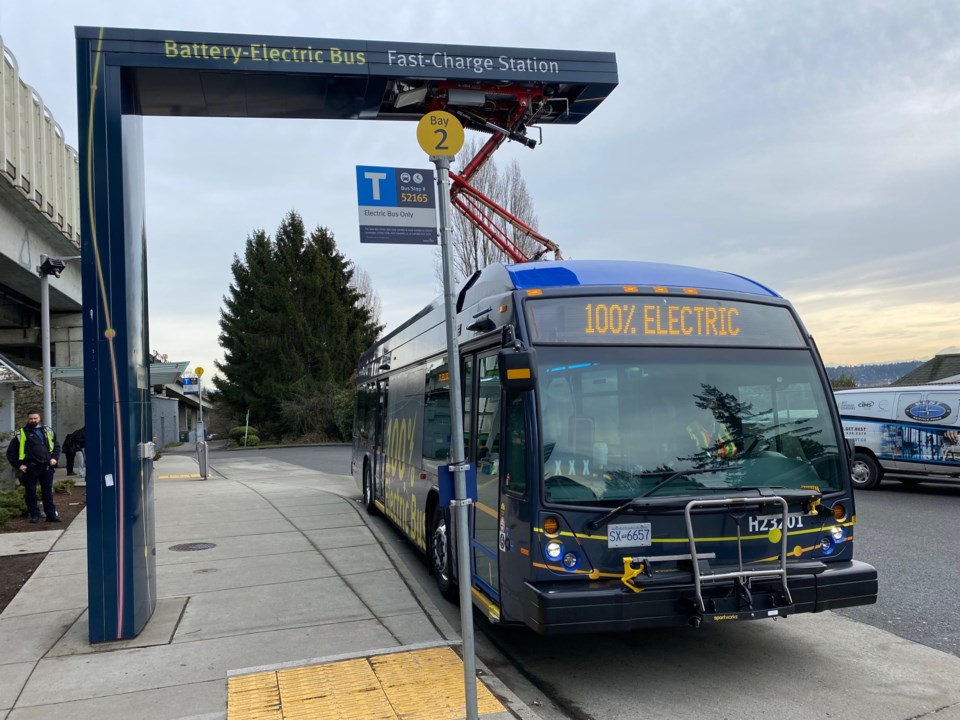TransLink unveiled Thursday its first battery-powered bus line, with the deployment of two charging stations on Route 100 along Marine Drive, from New Westminster to southwest Vancouver.
TransLink CEO Kevin Quinn says this is the first line to be electrified by battery-powered buses.
“Electrifying our bus fleet and moving to renewable fuels are the fastest ways TransLink can reduce GHG emissions to help combat climate change,” Quinn told an audience at the 22nd Street SkyTrain Station.
TransLink presently has four Nova LFSe+ brand electric buses on Route 100 and will be adding 15 more by 2024, to fully electrify the route.
Each bus has cost TransLink $1.1 million and will save the regional public transit company $40,000 each on annual fuel costs. TransLink claims the buses will collectively reduce greenhouse gas emissions by 1,000 tonnes annually.
Each Nova bus can operate for over 150 kilometres; so with Route 100 being 15 kilometres in one direction, each bus will need to be charged after five return runs. The charging stations are in place at the ends of the route. The station is a pillar that overhangs the stop; when the bus pulls up, a charging device lowers to connect to the bus and charges its battery in five minutes.
The company's climate action plan of 2022 calls for the Marpole (southwest Vancouver) transit centre to be "all-electric" by 2027.
TransLink has about 1,700 buses in its fleet and intends to have 400 of them powered by batteries by 2030. By 2040, TransLink intends to have a “zero-emission” bus fleet, which may include existing electric trolley buses, battery buses and hydrogen-powered buses. Of the existing fleet, there are 262 trolley buses. By 2050, TransLink intends to be at net-zero emissions across the entire company.
The battery buses are funded by the Canada Community-Building Fund, a partnership between the provincial and federal governments.
TransLink buses by the numbers in 2023:
4 battery-electric
262 trolley-electric
299 compressed natural gas
446 diesel-electric hybrid
448 low-emissions diesel
46 conventional diesel and hybrid
206 gasoline shuttles
349 gasoline Handy
282 support vehicles (unspecified)



